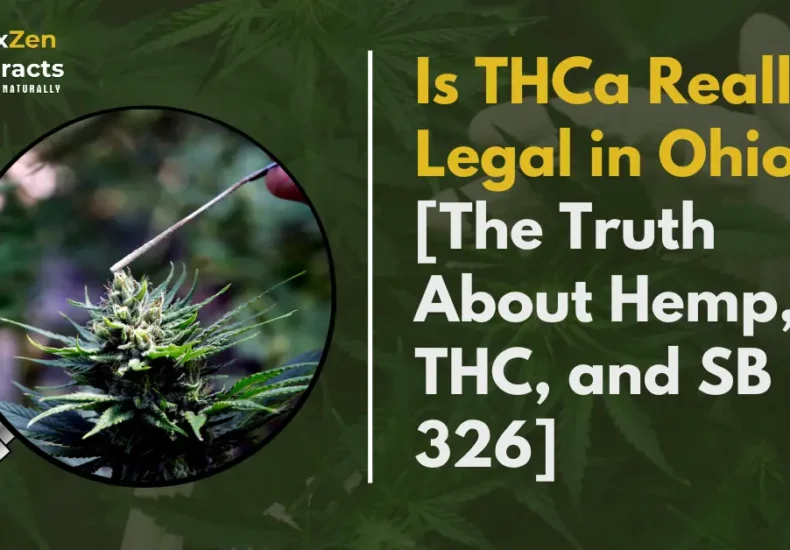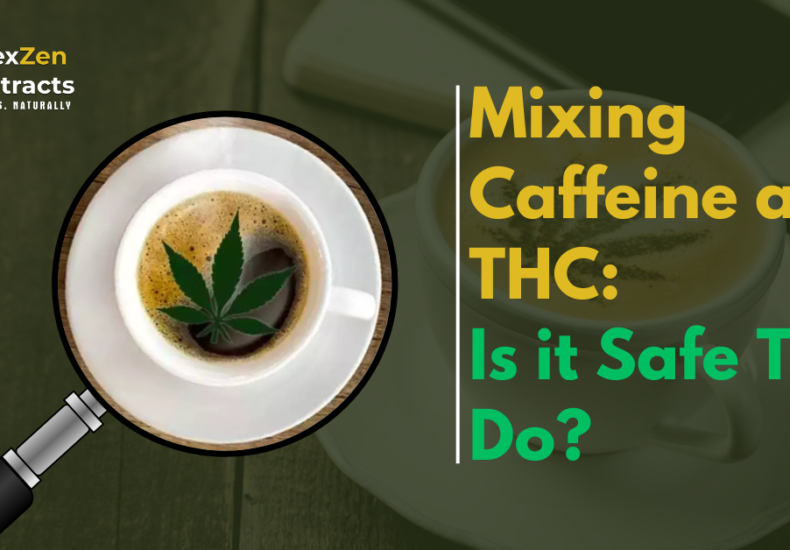
The cannabis world keeps evolving, and with it comes a growing list of cannabinoids—each with its own unique benefits, effects, and legal considerations. Two cannabinoids that have recently gained attention are THCP (Tetrahydrocannabiphorol) and THCA (Tetrahydrocannabinolic Acid). Although their names sound similar, they serve very different roles in how cannabis interacts with the human body.
In this blog, we’ll break down everything you need to know about THCP vs THCA—what they are, how they work, their potential benefits and risks, legal status in the U.S., and why understanding both can help you make smarter cannabis choices.
What Is THCA?
THCA is the raw, non-psychoactive form of THC found in live cannabis plants. It’s the chemical precursor to Delta-9 THC—the compound that causes the well-known “high.” When cannabis is heated (smoked, vaped, or cooked), THCA converts into THC through a process called decarboxylation.
Key Characteristics of THCA:
Non-intoxicating: Won’t get you high unless heated.
Found in raw cannabis: Juicing raw cannabis or using THCA-rich tinctures will deliver THCA without psychoactive effects.
Under research for health benefits: Early studies suggest THCA may have anti-inflammatory, anti-nausea, and neuroprotective properties.
What Is THCP?
THCP is a recently discovered cannabinoid, first identified by Italian researchers in 2019. It shares structural similarities with THC but has a longer side chain (seven carbon atoms compared to THC’s five), which helps it bind more strongly to cannabinoid receptors. This feature may make THCP up to 30 times more potent than THC at activating CB1 receptors.
Key Characteristics of THCP:
Highly psychoactive: Even small doses can result in powerful effects.
Rare in natural cannabis: It exists in trace amounts and is often produced synthetically for commercial use.
Still under research: Most of what we know about THCP is from early-stage animal or cell-based studies.
THCP vs THCA: Side-by-Side Comparison
| Feature | THCP | THCA |
|---|---|---|
| Psychoactive? | Yes – Highly potent | No – Becomes psychoactive only when heated |
| Natural Abundance | Trace amounts in cannabis | Naturally abundant in raw cannabis |
| Medical Benefits | Under research – possible intense relief | Under research – inflammation, nausea, etc. |
| Legality (USA) | Gray area – depends on synthetic origin & state | Legal in many states; non-psychoactive form |
| How It’s Consumed | Vapes, edibles, oils (lab-formulated) | Raw juices, capsules, unheated extracts |
| Who It’s For | Experienced users, high tolerance | Wellness seekers avoiding intoxication |

Effects: What Users Say
THCP Effects:
Because THCP binds so strongly to CB1 receptors, it may result in effects such as:
Intense euphoria
Deep body relaxation
Altered perception of time or reality
Sedation
Strong appetite stimulation
Note: Due to its potency, beginners should approach THCP with caution. Always start with low doses.
THCA Effects:
In its raw form, THCA doesn’t cause intoxication. Instead, users report:
Reduced inflammation and joint discomfort
Calmer stomach (anti-nausea)
Potential mental clarity
When heated and converted into THC, it delivers the familiar cannabis high.
Health Benefits and Potential Uses
Potential Benefits of THCA:
Anti-inflammatory: May help with arthritis or autoimmune conditions.
Neuroprotective: Shown in early studies to protect against neurodegenerative damage.
Antiemetic: Potential to ease nausea and vomiting, especially for chemotherapy patients.
Potential Benefits of THCP:
Pain Relief: Anecdotally reported to help with intense, chronic pain.
Insomnia Support: Due to its sedating nature, it may help some users fall asleep faster.
Elevated Mood: More potent euphoria compared to traditional THC may help improve mood.
Keep in mind, THCP is still being studied, and its long-term effects are not fully known.
Legality: Is THCA or THCP Legal in the U.S.?
THCA Legal Status:
THCA is federally legal in the U.S. as long as it is derived from hemp (with less than 0.3% Delta-9 THC) under the 2018 Farm Bill. However, once it is decarboxylated and becomes THC, its legal status changes depending on state laws. Many states treat THCA as a legal alternative to THC when consumed raw or in non-heated forms.
THCP Legal Status:
THCP’s legality is more complicated. Because it can be synthesized from hemp-derived CBD, it may technically fall under the protections of the 2018 Farm Bill. But due to its high potency and psychoactive effects, some states may regulate or ban it similarly to Delta-9 THC or Delta-8.
Currently, states with tighter cannabis restrictions may prohibit THCP:
Idaho
Utah
North Dakota
Nebraska
Always check your state’s local cannabis laws before buying THCP or THCA products.
How to Choose Between THCP and THCA
Here’s how to decide which cannabinoid might be right for you:
Choose THCA if:
You want health benefits without getting high.
You’re interested in raw cannabis juices, capsules, or tinctures.
You’re sensitive to THC and want a non-psychoactive option.
Choose THCP if:
You have a high THC tolerance and want something stronger.
You’re looking for a next-level experience or relief from intense symptoms.
You’re comfortable with newer, less-tested cannabinoids.
Final Thoughts: THCP vs THCA – Which One Wins?
The truth is, neither THCP nor THCA is better—just different. THCA appeals to those who want the therapeutic potential of cannabis without intoxication. THCP, on the other hand, offers a powerful new option for experienced cannabis users seeking stronger effects than traditional THC products provide.
As science evolves and legalization spreads, we’ll learn more about how both cannabinoids can be used for wellness, recreation, and medical support.
FAQs
Is THCP safe to use?
Since THCP is still under research, it’s best to approach it cautiously. Start with very low doses and monitor how your body reacts.
Does THCA get you high?
Not in its raw form. It only becomes psychoactive when heated.
Can I buy THCP online?
Yes, but only from trusted brands that offer lab-tested, hemp-derived THCP and ship to states where it’s legal.








